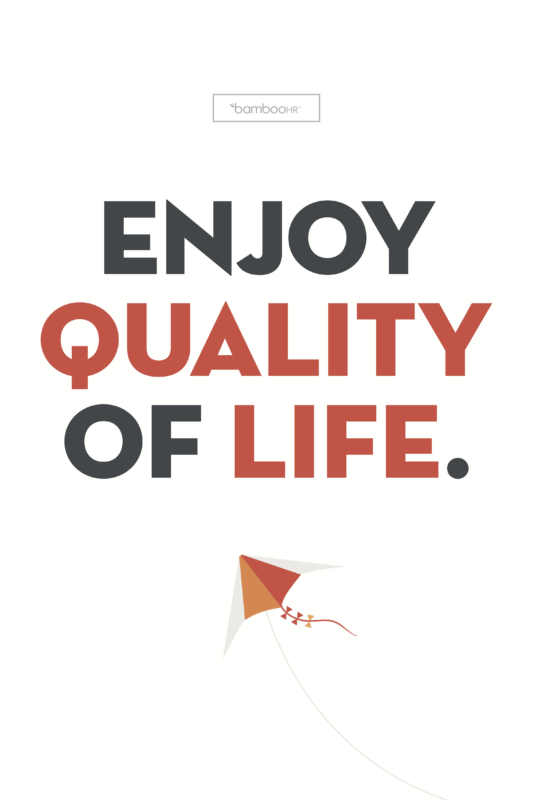Career Advice: 7 Tips for New HR Professionals
Whether you’re almost through your first week in HR or your first decade, there’s always more to learn about making a great place to work. Here are seven career advice tips on how to move up in your career (whether in HR, recruiting, or a related field) that we’ve learned as we’ve developed and implemented our seven company values, with experiences from our own HR pros to match.
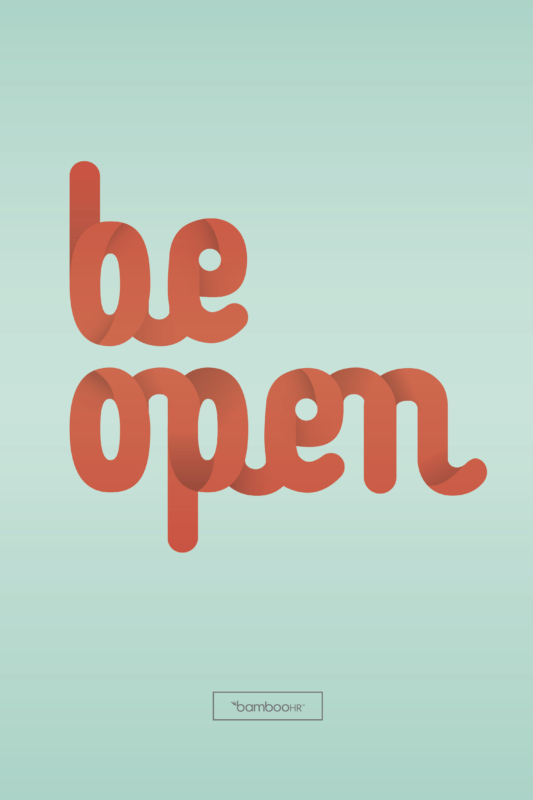
Career Advice Tip #1: Be Open
This is arguably BambooHR’s primary value, as it sets up valuable patterns of communication and change on every team. The career lesson is fairly simple: a good idea can come from anyone or anywhere. There is no one right answer to a given question.
Developing a culture of openness helps remove some of the pressure that comes with any new job. An open culture emphasizes that there’s not an employee performance management squad monitoring each decision and deducting points for mistakes.
This can be a difficult change in mindset, especially for professionals who have just finished their education and started their careers. But it’s an important change, as advanced HR issues are often messy, ambiguous, and, well, human.
With this pressure gone, new employees enjoy mental and social space to continue learning. They don’t fall into the trap of doing things the same way they’ve always been done just to be on the safe side. Or in the case of new people, pretending to know what they’re doing to avoid looking bad.
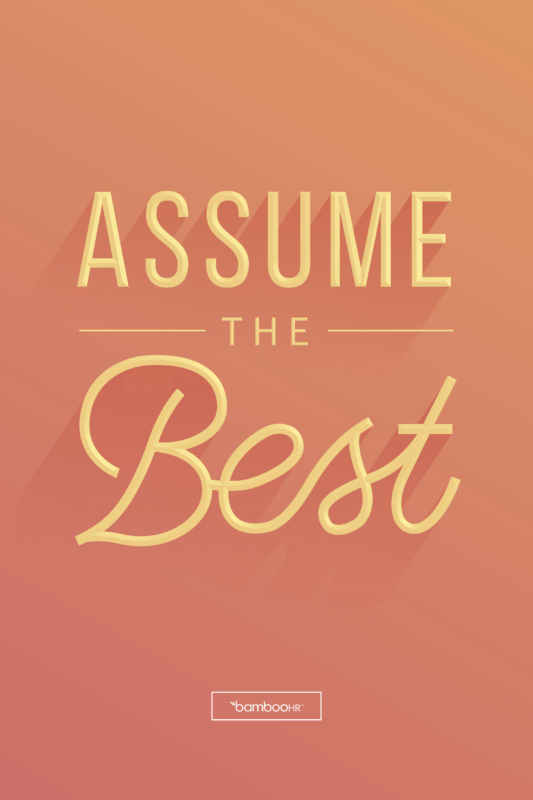
Career Advice Tip #2: Assume the Best
HR people are some of the nicest people around. They genuinely want to help employees succeed at work. At the same time, though, HR professionals have a responsibility to represent the organizations they work for.
For new HR pros, this can seem like a tough choice between accommodating their coworkers to develop relationships and enforcing regulations to satisfy the people that hired them. Thomas de Oliveira, a recruiter at BambooHR, describes such an experience from early in his hr career:
“I worked with a hiring manager who was highly regarded by my manager. Wanting to earn a few extra points with the boss, I tried to become friends with this hiring manager while we worked together in filling a position. Not long into the process, I realized that the priority over friendship came at the cost of us working efficiently and hiring the right person for the company. I became more concerned about maintaining our friendship than in correcting him when he was clearly making a mistake in his assessment of candidates. Thankfully, my manager noticed this pattern and respected me enough to call me in to correct my behavior, for which I’m thankful to this day.”
One of Bamboo’s values goes a long way toward relieving these kinds of concerns. When you Assume the Best, you keep in mind that the people you work with are trying their best, and that, most of the time, their mistakes aren’t deliberate sabotage. In Thomas’ story, a healthy relationship between a manager and a new employee led to effective critical feedback and kept an honest mistake from becoming a bad habit.
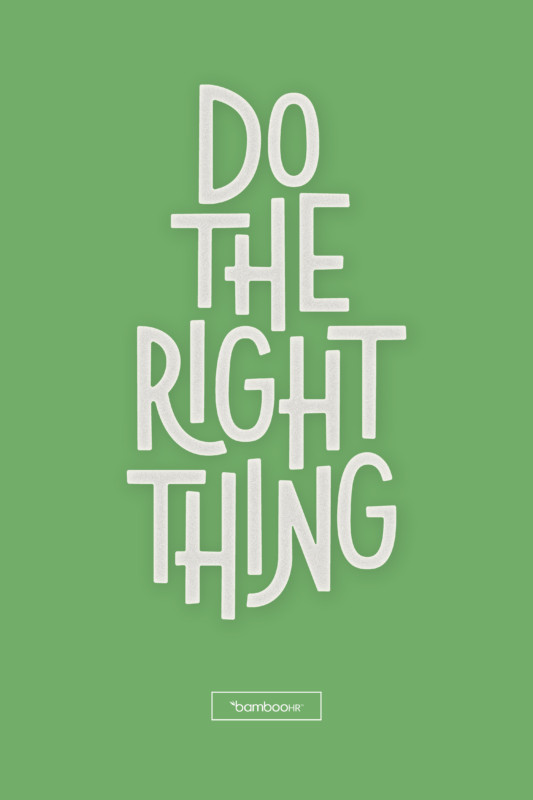
Career Advice Tip #3:
Do the Right Thing
Openness and a positive mindset are important ingredients for successful HR work. But to get the right results, they have to be backed up by employees who Do the Right Thing.
As one of BambooHR’s values, we mean this in the broadest sense possible: we want to do the right thing for employees, customers, the organization as a whole, and the community around us. For HR, this means navigating personnel and financial issues in a way that both respects employees’ privacy and protects the organization from legal liability.
Implementing the first two values makes it easier to do the right thing. One of our HR staff shares the following story (names removed for privacy):
“I had an experience where an employee was involuntarily terminated, and one of their team members noticed and asked about it. They asked out of wanting to know what they should do to avoid having that happen to them because they wanted to be a good employee and to do good work. It was hard to know how to balance what to share, while still keeping the confidentiality of the situation which was very important.”
Instead of answering the question at face value and revealing private information, this HR pro identified the real issue: anxiety over performance. “I ended up advising the employee to continually communicate with their manager during one-on-ones to ensure that they were on track and meeting expectations,” she says. In this case, effective communication let HR do the right thing—both for the employee and for our organization.
Career Advice Tip #4: Enjoy Quality of Life
Every HR department spends time considering work-life balance, whether in their time-off policies or when putting together their staffing needs. Our value Enjoy Quality of Life takes the concept one step further and focuses on improving employees’ experience in each aspect of their lives, both during work hours and otherwise.
The trouble with the concept of work-life balance is that it tends to frame work and life as a binary choice: you’re either bored at work, or having fun at home. But in reality, your employees can feel everything from pride in an effective morning’s work to gnawing anxiety at home while working through their finances. HR plays a big part in all of these human experiences, from providing meaningful, fulfilling work to supporting employees with the time and resources they need.
“One of the reasons I chose HR as my profession was the desire to protect basic ‘human’ rights in work settings,” says Cassie Whitlock, Director of HR at BambooHR. “I can make sure that the law is followed, but even more importantly, I care that the humans impacted by the law are treated fairly and with courtesy.”

Career Advice Tip #5: Lead from Where You Are
HR deals with some of the most sensitive subjects in the workplace, including money, health, and conflict resolution. These might seem like manager-level topics, but even new HR pros will need to learn how to address these issues effectively. Whitlock provides some perspective:
“Working in HR means sometimes you deal with some pretty unreasonable or extreme situations,” Whitlock says. “You have to develop the skill of focusing your personal emotions as you work through these situations. If your patience has expired and you decide you can be a bit short while working with an employee, you are deciding that your need to be ‘human’ is more important than showing respect. Even someone who has done something wrong deserves to be treated with respect and dignity.”
The people you serve will pay more attention to your example than your official title. When you Lead from Where You Are, you show that you’re willing to do more than just fulfill your responsibilities—you’re also willing to be accountable for the important human elements that aren’t spelled out in your job description.
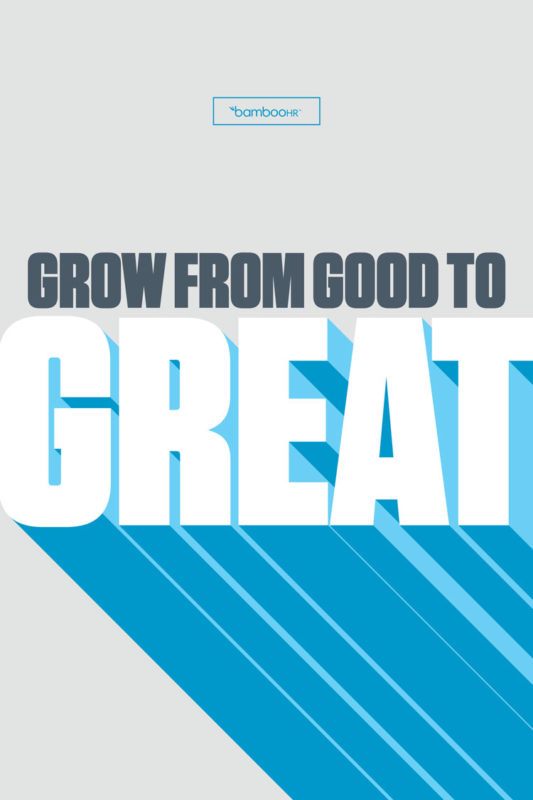
Career Advice Tip #6: Grow from Good to Great
The most effective leaders consider more than the here and now. They Grow from Good to Great. A new HR professional might start out with transactions like managing time-off programs or running payroll. But as the organization grows, an HR program with the right focus can help shape an organization’s people to magnify their success.
Think back to your first day, or your first week. You likely had several questions that you needed to answer about your responsibilities, about communication, about how to move up in your career. When HR has the support it needs, these questions aren’t just a one-time consideration, but a continuing source of growth. “What do I need to learn?” becomes “What do I need to learn next?” “What does my organization expect of me?” becomes “What is the next step in my career path?” When HR masters the operational tasks, it can then start playing its part in uniting each employee under the organization’s big-picture strategy.
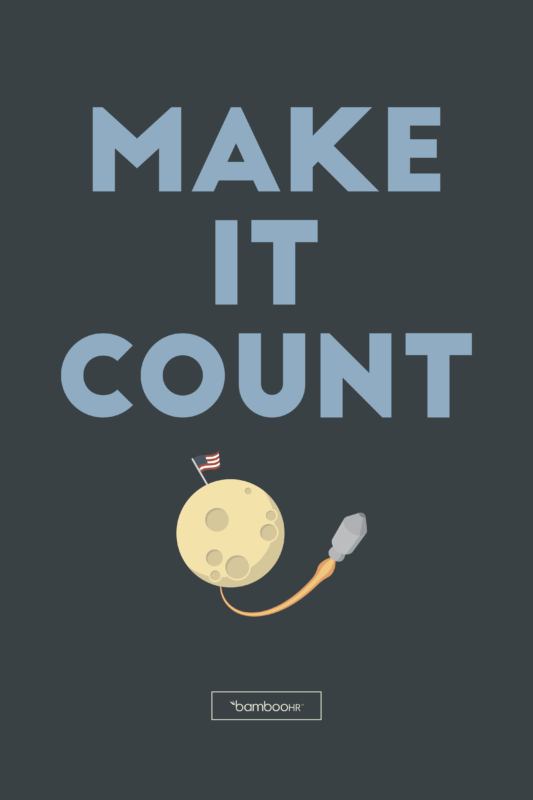
Career Advice Tip #7: Make it Count
When you have a solid strategy, the only thing that limits your potential is how you use your time. It’s why BambooHR added its seventh value, Make it Count. For employees, that translates to taking personal responsibility for daily work. For the HR department, it means spending your time on what matters most, using the right HR software to move past administrative tasks and start making a real difference.
In his book The Employee Experience Advantage, futurist Jacob Morgan explored companies whose HR strategies mastered culture, technology, and physical presence. He found that these organizations had more than four times the average profit and more than two times the average revenue. They were also almost 25% smaller, so it was a matter of efficiency rather than sheer size.
This is the difference that your work can make, whether you’re a long-term veteran or a fast-learning HR newbie. BambooHR is there to help you make it count, whether you’re tracking applicants, supporting your employees’ vacation time, or providing important insights with quick, custom reports. So wherever you are in your HR career, we wish you the best of luck in creating a great place to work.
Get caught up every month on all things HR. Don't worry, we promise we won't spam you.
Brian Anderson expertly decodes all things HR, drawing on a decade of technical writing in the business organization industry to provide editorial support to internal and external learning programs at BambooHR. His writing explores the different motivations that shape the employee experience and the psychology of human resources.



